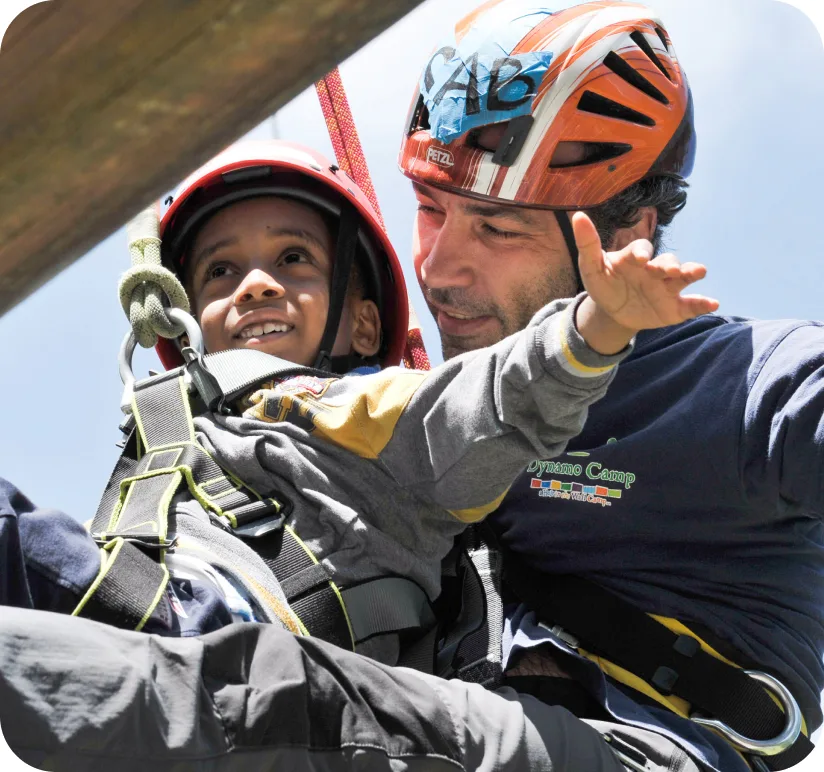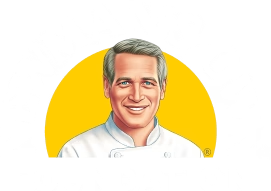Meet the changemakers
Filters ( 0 )
Alaska
Guam
Hawai’i
Midwest
Northeast
South
Southeast
Southwest
United Kingdom
West
Select allIndigenous Food Justice
Nutrition Education & School Food
SeriousFun
Food Justice for Kids Prize Recipient
27 results
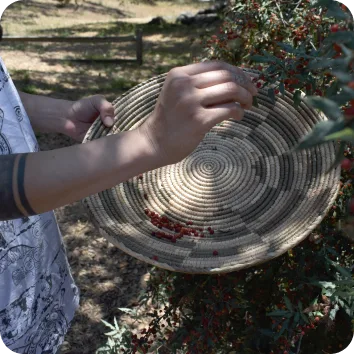
California Indian Culture and Sovereignty Center
Indigenous Food Justice
California
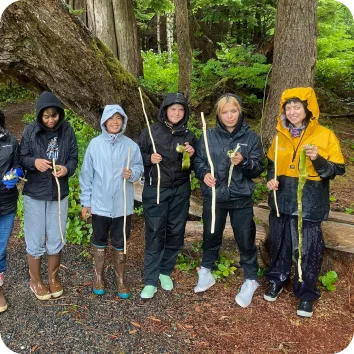
Central Council of Tlingit & Haida Indian Tribes of Alaska
Indigenous Food Justice
Alaska
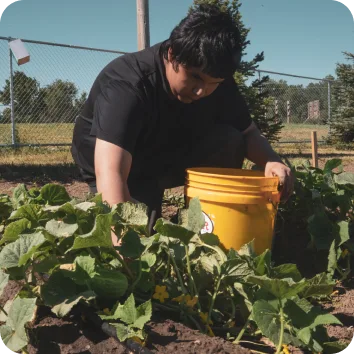
Cheyenne River Youth Project
Indigenous Food Justice
South Dakota
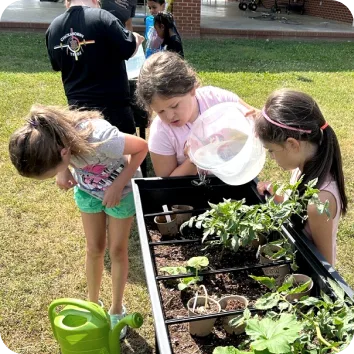
Chickahominy Indian Tribe
Indigenous Food Justice
Virginia
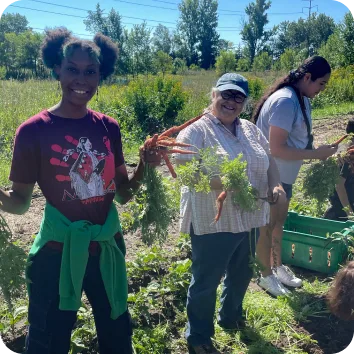
Dream of Wild Health
Indigenous Food Justice
Minnesota
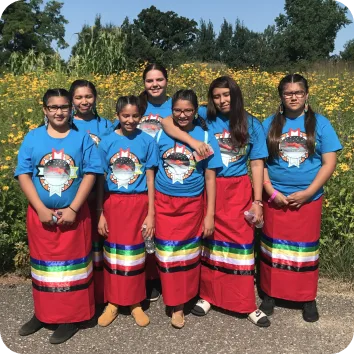
First Nations Development Institute
Indigenous Food Justice
Colorado
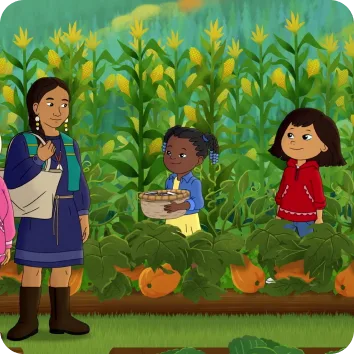
GBH’s Molly of Denali
Indigenous Food Justice
Massachusetts
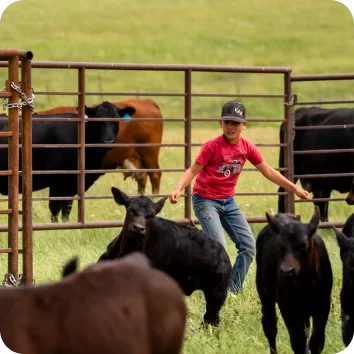
Intertribal Agriculture Council
Indigenous Food Justice
Montana
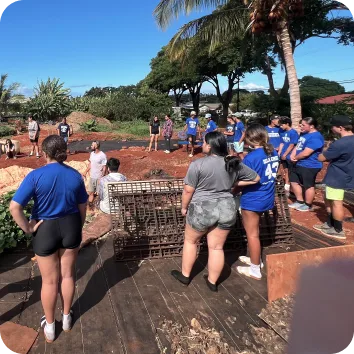
Iwikua
Indigenous Food Justice
Hawai’i
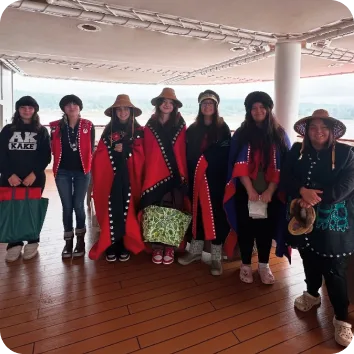
Kake Tribal Heritage Foundation
Indigenous Food Justice
Alaska
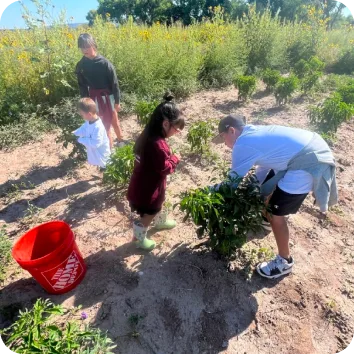
Keres Children’s Learning Center
Indigenous Food Justice
New Mexico
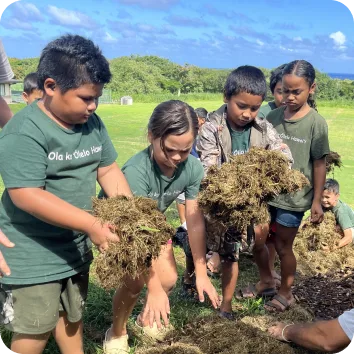
Ma Ka Hana Ka ‘Ike
Indigenous Food Justice
Hana, Hawai’i
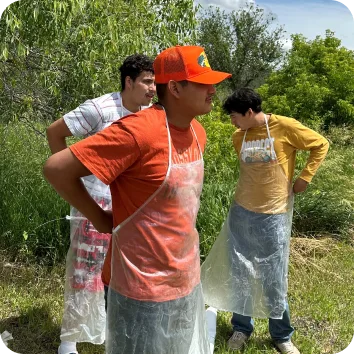
Makoce Agriculture Development
Indigenous Food Justice
South Dakota
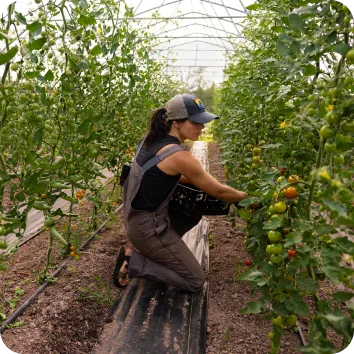
Mino Bimaadiziiwin Tribal Farm, Red Cliff Band of Lake Superior Chippewa
Indigenous Food Justice
Wisconsin
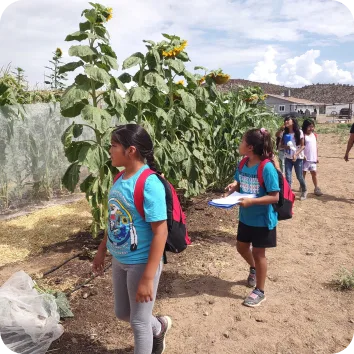
Nalwoodi Denzhone Community
Indigenous Food Justice
Arizona
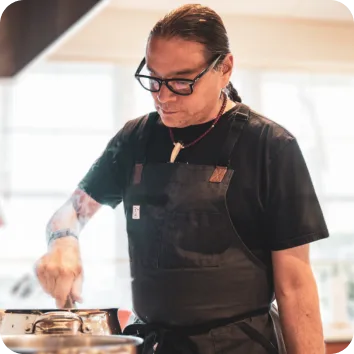
North American Traditional Indigenous Food Systems
Indigenous Food Justice
Minnesota
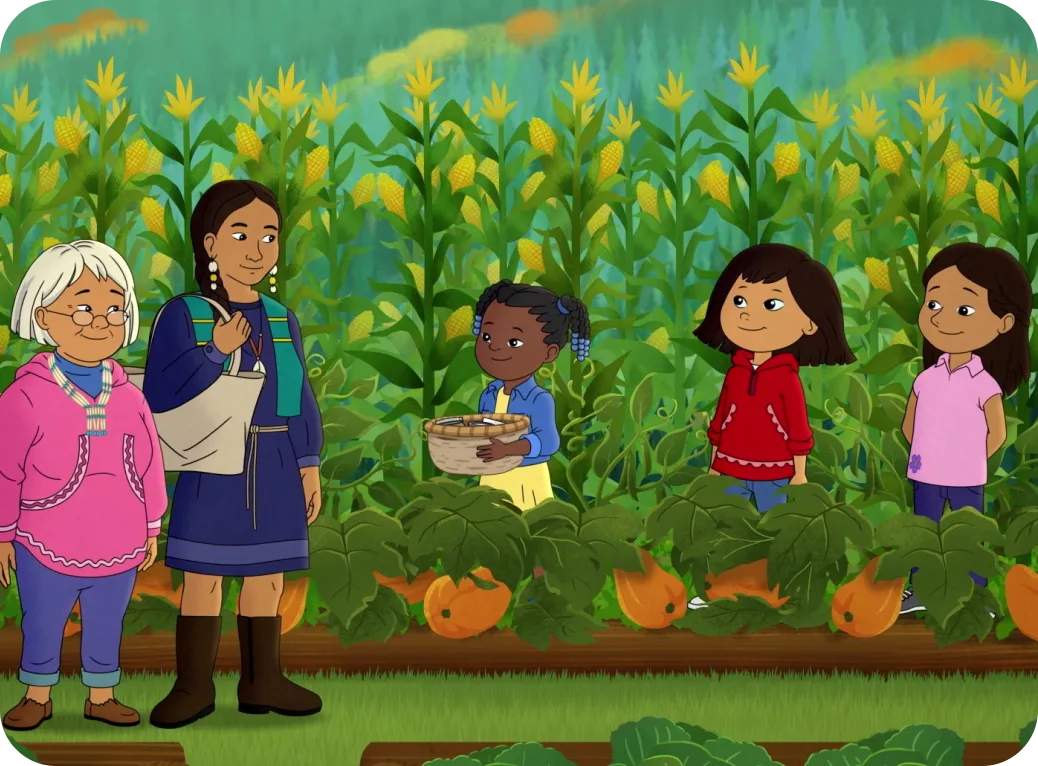
Image courtesy of Molly of Denali.
GBH’s Molly of Denali

The PBS KIDS animated series Molly of Denali follows 10-year-old Molly Mabray, an Alaska Native girl who lives in the fictional village of Qyah, Alaska. Through streamed and broadcast episodes, a podcast, games, and educational resources, Molly’s adventures help build literacy skills while introducing traditional foods, food practices, and other aspects of Alaska Native and Indigenous cultures to kids ages 4-8 nationwide. Molly of Denali is the first nationally distributed children’s series to feature Indigenous lead characters.

Image courtesy of Molly of Denali.
Grantee Partner Information
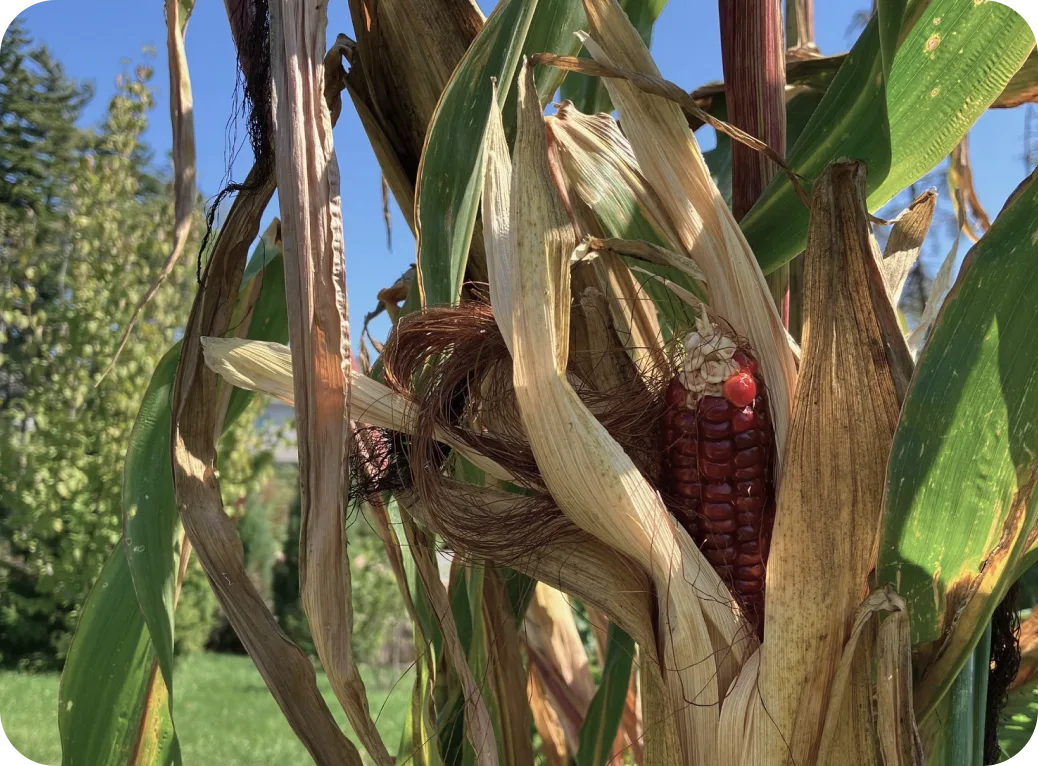
Wabanaki Health and Wellness
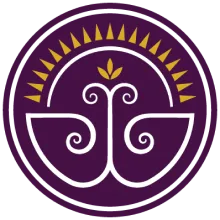
Wabanaki Public Health & Wellness serves the Houlton Band of Maliseet Indians, the Aroostook Band of Micmacs, the Passamaquoddy Tribe at Indian Township, the Passamaquoddy Tribe at Pleasant Point, and the Penobscot Nation. Its mission is to provide community-driven, culturally centered public health and social services to all Wabanaki communities and people while honoring Wabanaki cultural knowledge, cultivating innovation, and fostering collaboration. Youth engagement is provided through culturally centered after-school activities and special events, including The Learning Kitchen, which offers youth a chance to try traditional foods, learn how to prepare them, and share what they learn with their families.

Grantee Partner Information
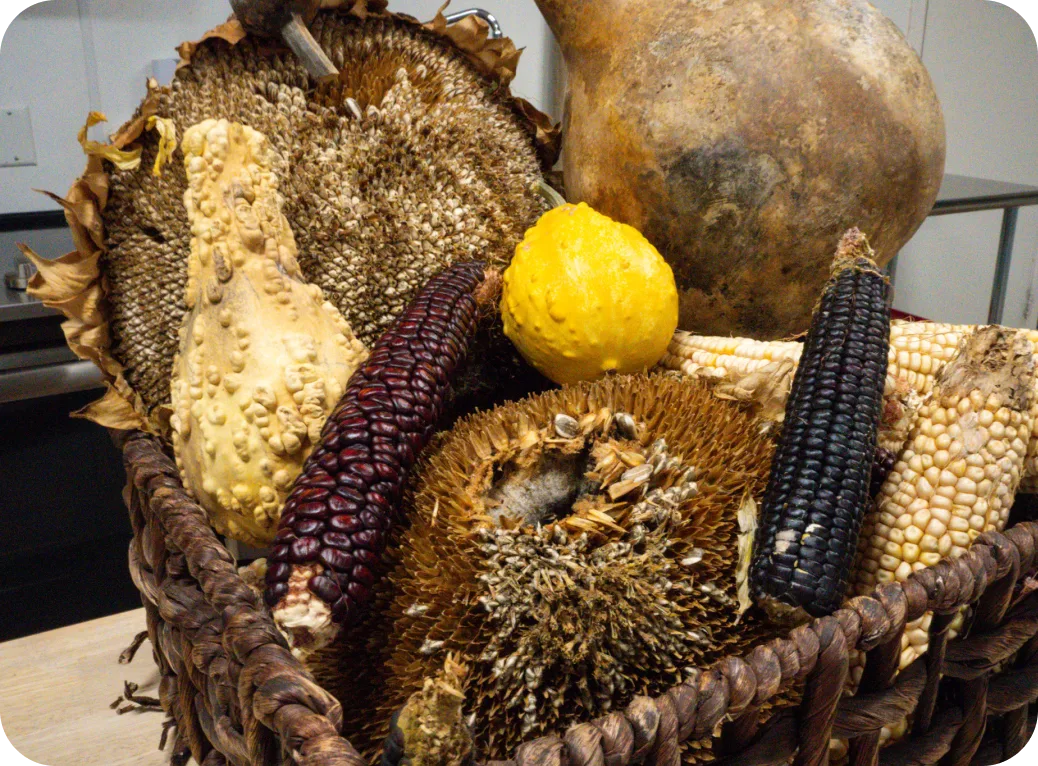
University of Minnesota Foundation
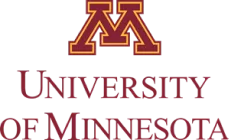
Hosted by the University of Minnesota, the Conference on Native American Nutrition brings together tribal and community leaders, nutrition and wellness educators, researchers and students, health practitioners, government officials, funders, and others to discuss the current state of both Indigenous and academic scientific knowledge about Native food systems, food sovereignty, nutrition, and health. Sessions include Indigenous perspectives on the role of food in health and wellbeing, model tribal programs, the state of Indigenous science, and food policy.

Grantee Partner Information
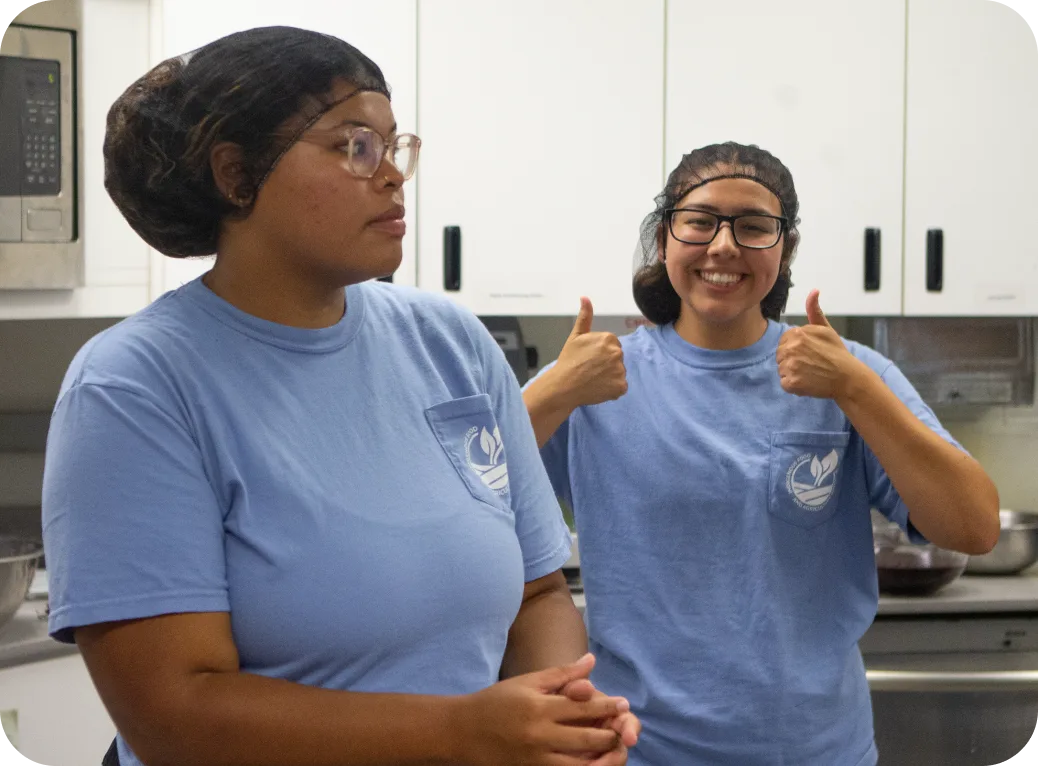
Photo courtesy of University of Arkansas Foundation.
University of Arkansas Foundation

The Indigenous Food and Agriculture Initiative’s Native Youth in Food and Agriculture Leadership Summit invests in the next generation of Native food and agricultural leaders, equipping participants with professional skills and knowledge while building lifelong connections to peers from across Indian Country. Along with sessions and activities on the University of Arkansas’ campus, participants tour nearby Tribal food and agriculture operations to learn more about food sovereignty and conservation efforts. The week-long summit also includes preparing a meal crafted with Native-produced and local ingredients alongside seasoned Native American chefs, attending food preservation classes led by IFAI’s food safety team, and more!

Photo courtesy of University of Arkansas Foundation.
Grantee Partner Information
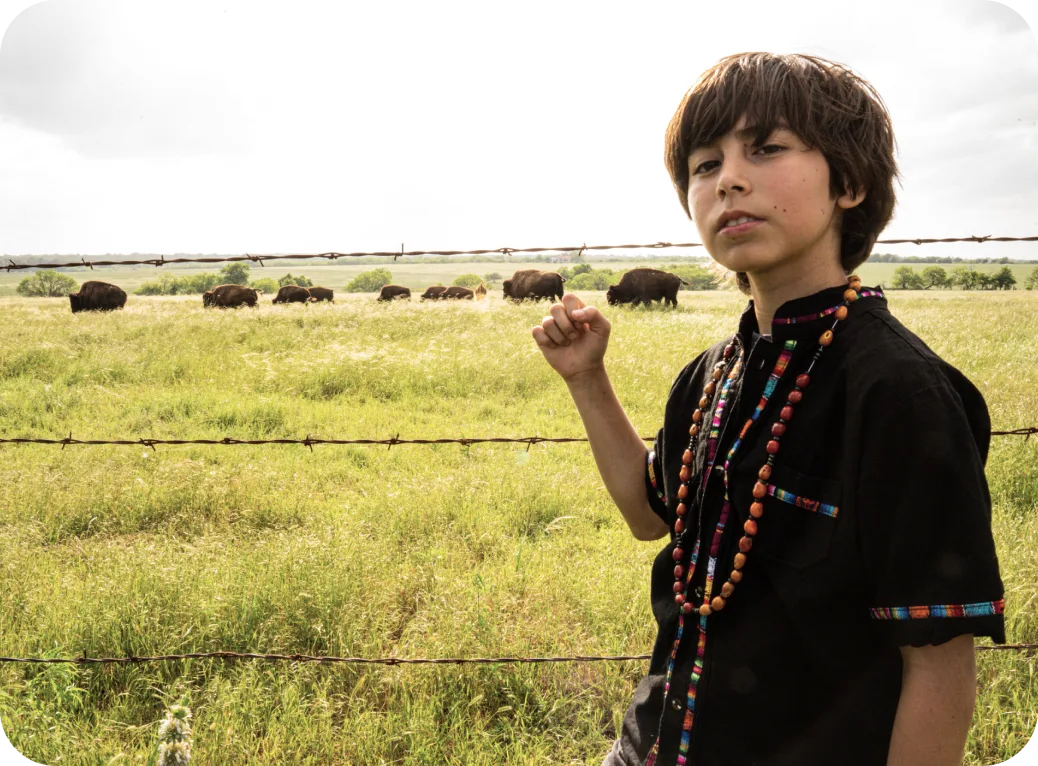
Texas Tribal Buffalo Project
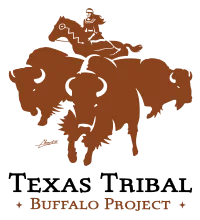
Texas Tribal Buffalo Project is dedicated to the relationship between Lipan Apache and other Indigenous communities and tribes in Texas with buffalo. This resurgence of Native life promotes health and vitality for the land and for the people who utilize bison meat and other valuable products. Cultural Youth Camp participants learn farming and agriculture methods, as well as care of the buffalo and the community garden.

Grantee Partner Information
Partner since
2022
Location
(Lipan Apache descendants) Texas
Priority
Indigenous Food JusticeFurther Reads
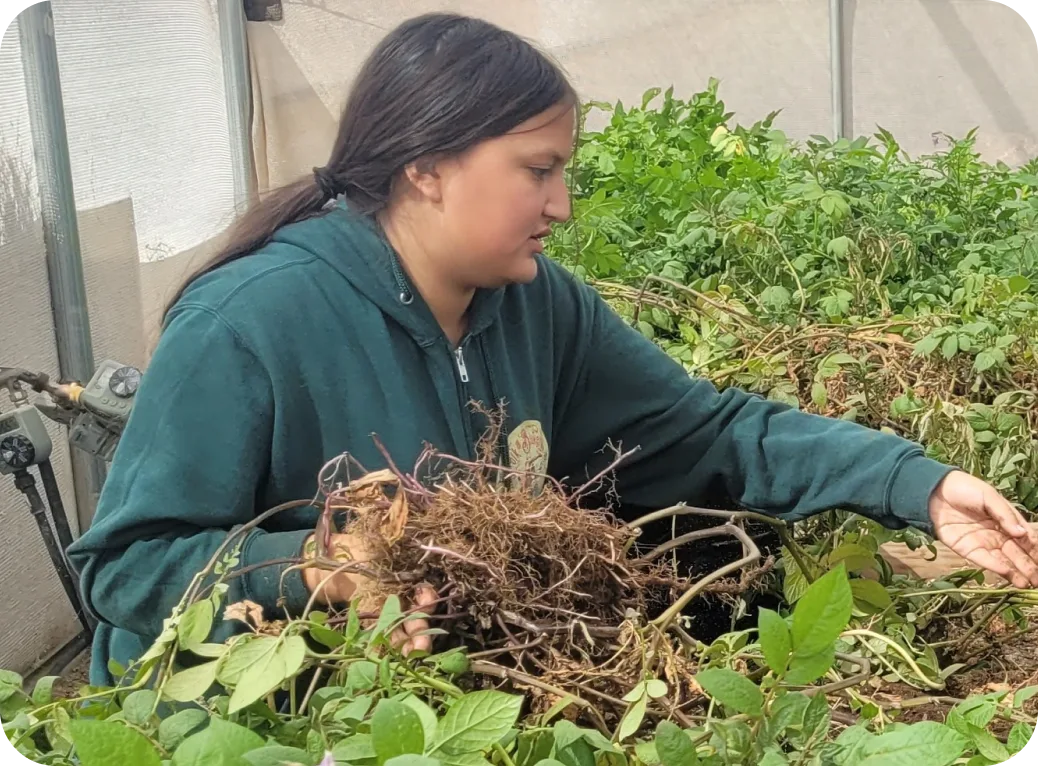
Photo courtesy of STAR School.
STAR School (aka Painted Desert Demonstration Projects)

The STAR School is a rural and remote charter school located outside of Flagstaff, AZ, that serves a student population that is 99% Native American. The school’s gardening program allows its students to grow fresh and healthy food so they can learn about nutrition and food sovereignty.

Photo courtesy of STAR School.
Grantee Partner Information
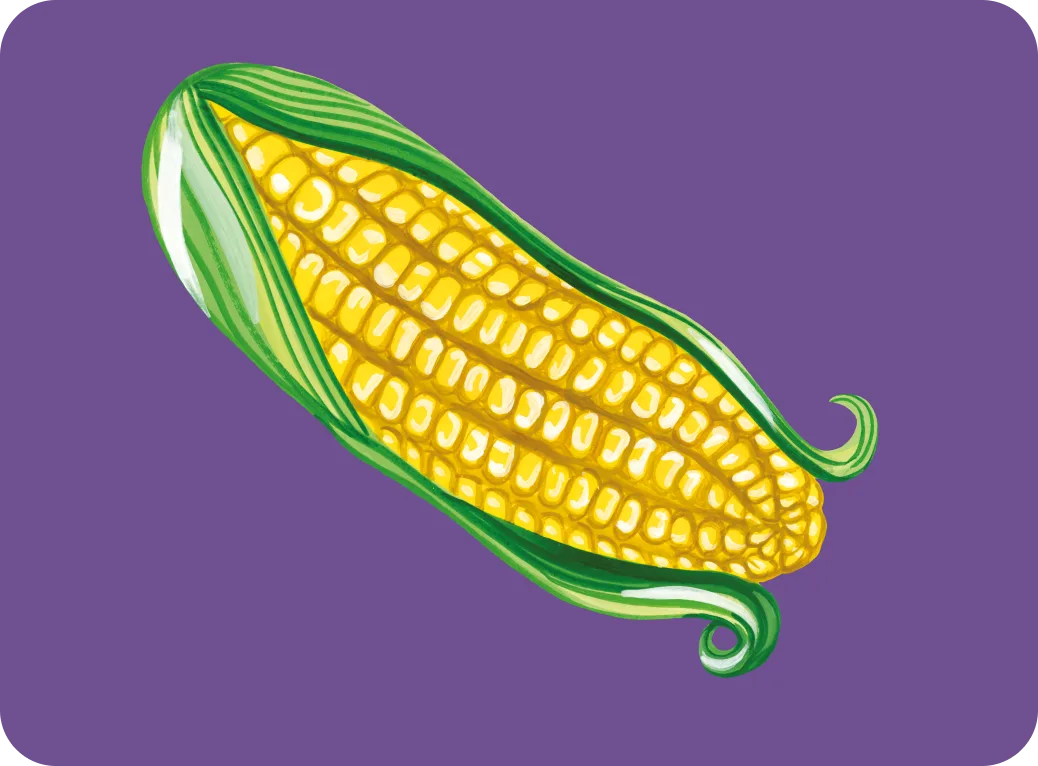
Snoqualmie Indian Tribe
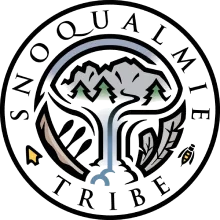
Snoqualmie Indian Tribe is a sovereign tribal nation provides health and wellness services and education benefits to its people.

Grantee Partner Information
Partner since
2024
Location
(Snoqualmie) Washington
Priority
Indigenous Food JusticeProgram
2024 Food Justice for Kids Prize Recipient
Partner Links
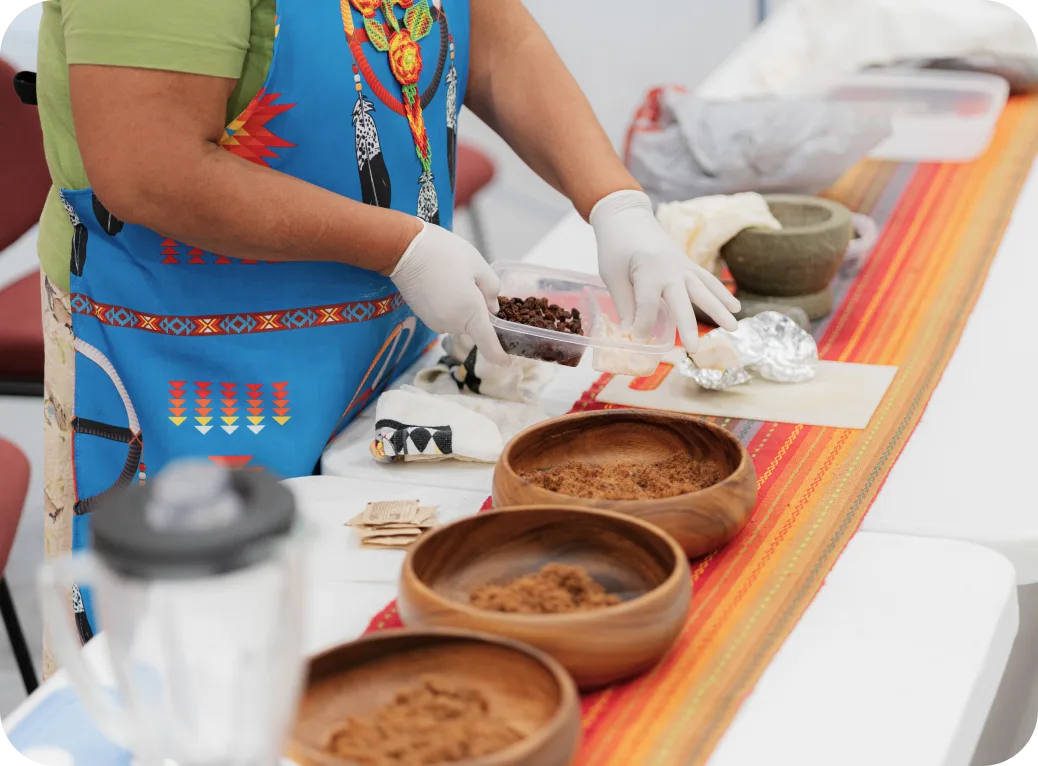
Photo courtesy of Siċaŋġu Co.
Siċaŋġu Co

As Lakota, Siċaŋġu Co believes its people are all related and have a duty to create a better world for future generations. The Siċaŋġu Health Initiative exists to help Siċaŋġu families on their return to their natural healthiness and wellbeing (Wicozani). Siċaŋġu Co builds socio-emotional well-being in young people through in-school programming and camps, supports family health through coaching and food and wellness classes, and engages communities through health- and relationship-building events.

Photo courtesy of Siċaŋġu Co.
Grantee Partner Information
Partner since
2022
Location
(Siċaŋġu Lak̇ota nation) South Dakota
Priority
Indigenous Food JusticeFurther Reads
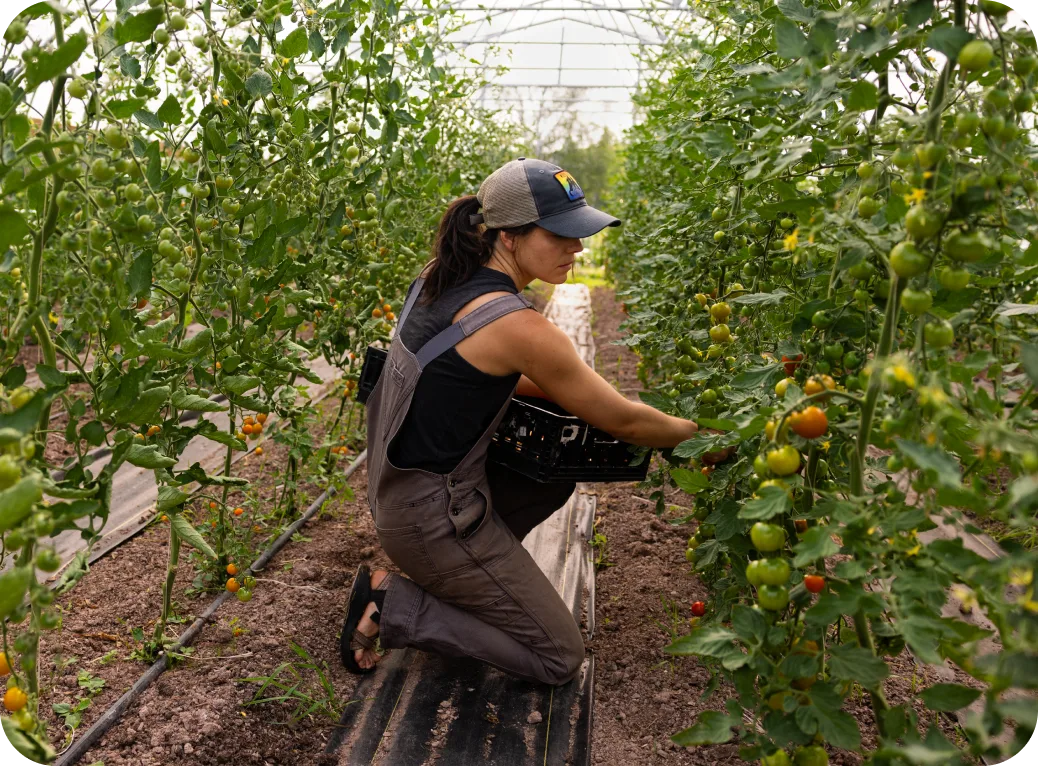
Photo courtesy of Mino Bimaadiziiwin Tribal Farm, Red Cliff Band of Lake Superior Chippewa.
Mino Bimaadiziiwin Tribal Farm, Red Cliff Band of Lake Superior Chippewa
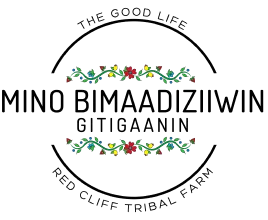
The mission of Mino Bimaadiziiwin (the Good Life) Tribal Farm (a program of Red Cliff Band of Lake Superior Chippewa) is to support the needs of the Red Cliff community and advance the food sovereignty goals of the Tribe. It accomplishes this through production and distribution of food, community engagement and food sovereignty initiatives, and youth work. Its youth initiatives include an annual iskigamizigan (sugarbush), seasonal field trips, youth workshops and cultural events, and distribution of produce directly to the local school cafeteria.

Photo courtesy of Mino Bimaadiziiwin Tribal Farm, Red Cliff Band of Lake Superior Chippewa.
Grantee Partner Information
Partner since
2022
Location
(Red Cliff Band Of Lake Superior Chippewa) Red Cliff Reservation, Wisconsin
Priority
Indigenous Food JusticeFurther Reads
Partner Links
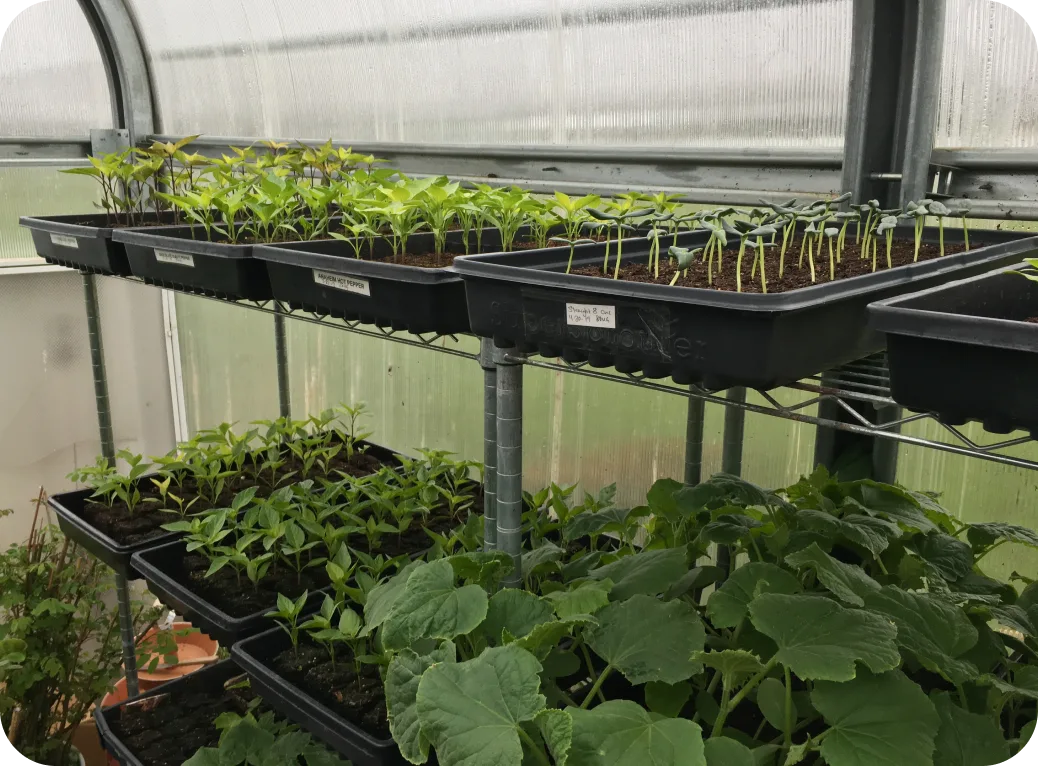
Photo courtesy of Partnership with Native Americans.
Partnership with Native Americans

Partnership with Native Americans is a nonprofit organization that works with tribal communities to improve the quality of life for Native Americans living on reservations.

Photo courtesy of Partnership with Native Americans.
Grantee Partner Information
Partner since
2024
Location
Texas
Priority
Indigenous Food JusticeProgram
2024 Food Justice for Kids Prize Recipient
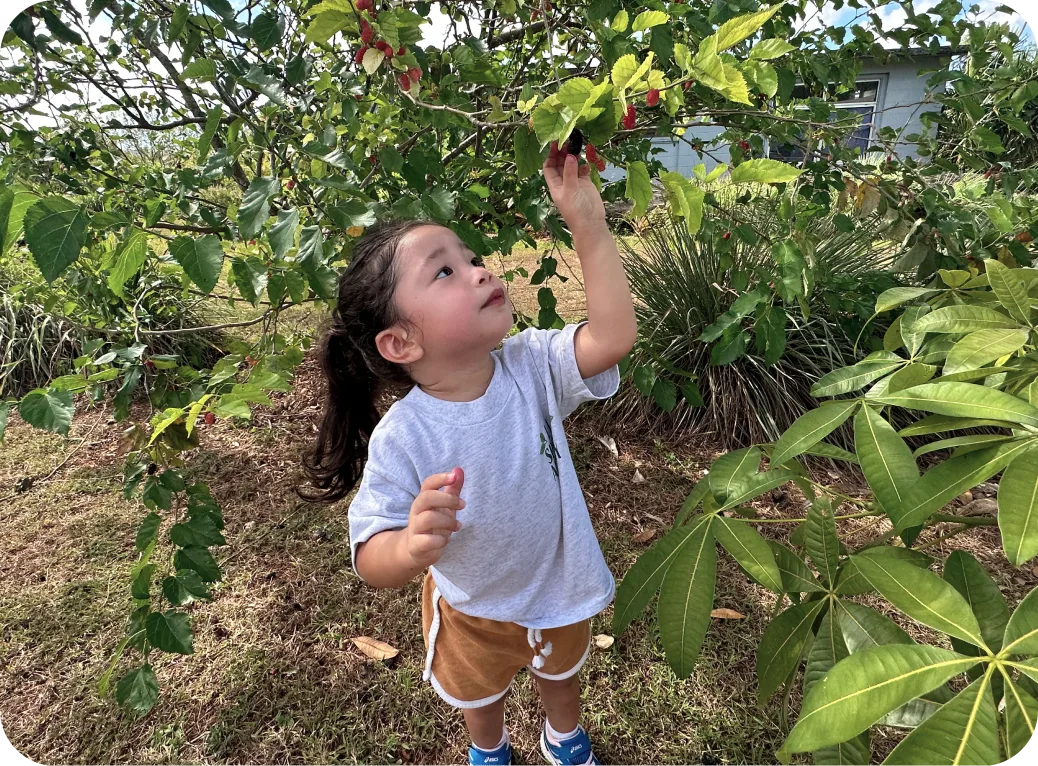
Photo courtesy of Oceanic Ascent Education & Athletics (Guåhan Sustainable Culture).
Oceanic Ascent Education & Athletics (Guåhan Sustainable Culture)

Guåhan Sustainable Culture’s Youth Education Program focuses on educating elementary and middle school students on the importance of growing their own food by teaching them how to create a garden and cook healthy foods using what they grow. The program includes field trips to the organization’s community gardens, cooking classes using locally grown produce, and engagement with farmers.

Photo courtesy of Oceanic Ascent Education & Athletics (Guåhan Sustainable Culture).
Grantee Partner Information
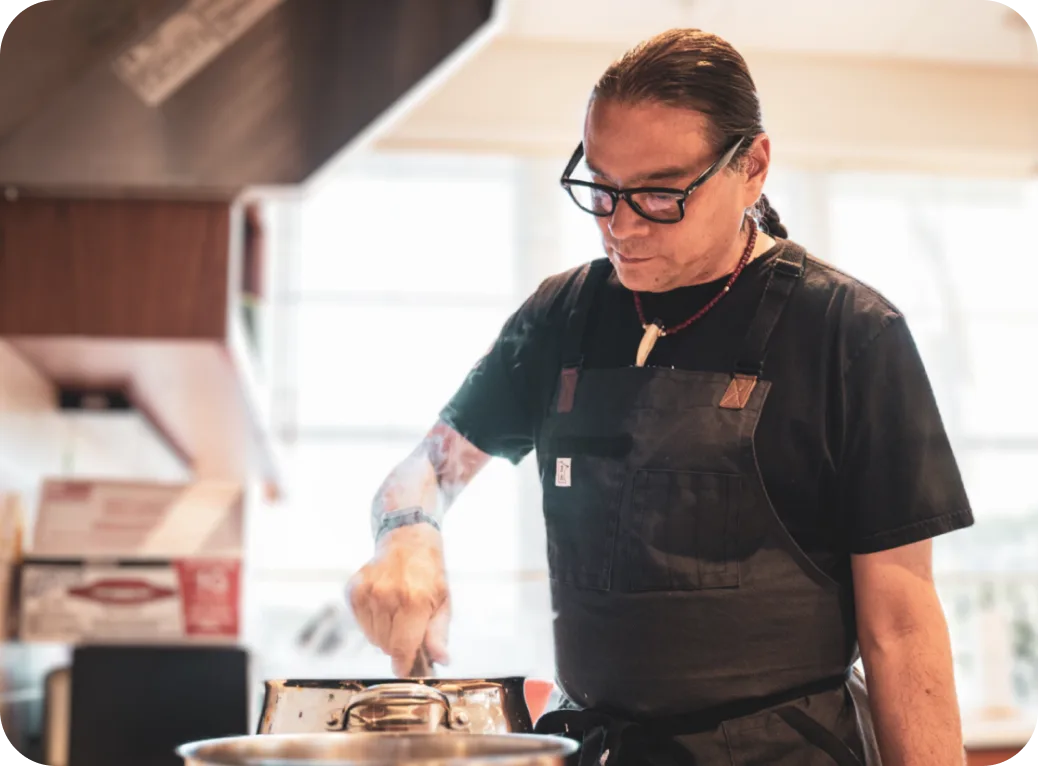
Photo courtesy of NATIFS.
North American Traditional Indigenous Food Systems
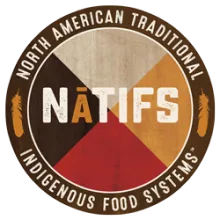
North American Traditional Indigenous Food Systems (NĀTIFS) is the nonprofit founded by Lakota Chef Sean Sherman of The Sioux Chef. NĀTIFS and the Indigenous Food Lab are working to address the economic and health crises affecting Native communities by re-establishing Native foodways; its mission is to promote Indigenous foodways education and facilitate Indigenous food access.

Photo courtesy of NATIFS.
Grantee Partner Information
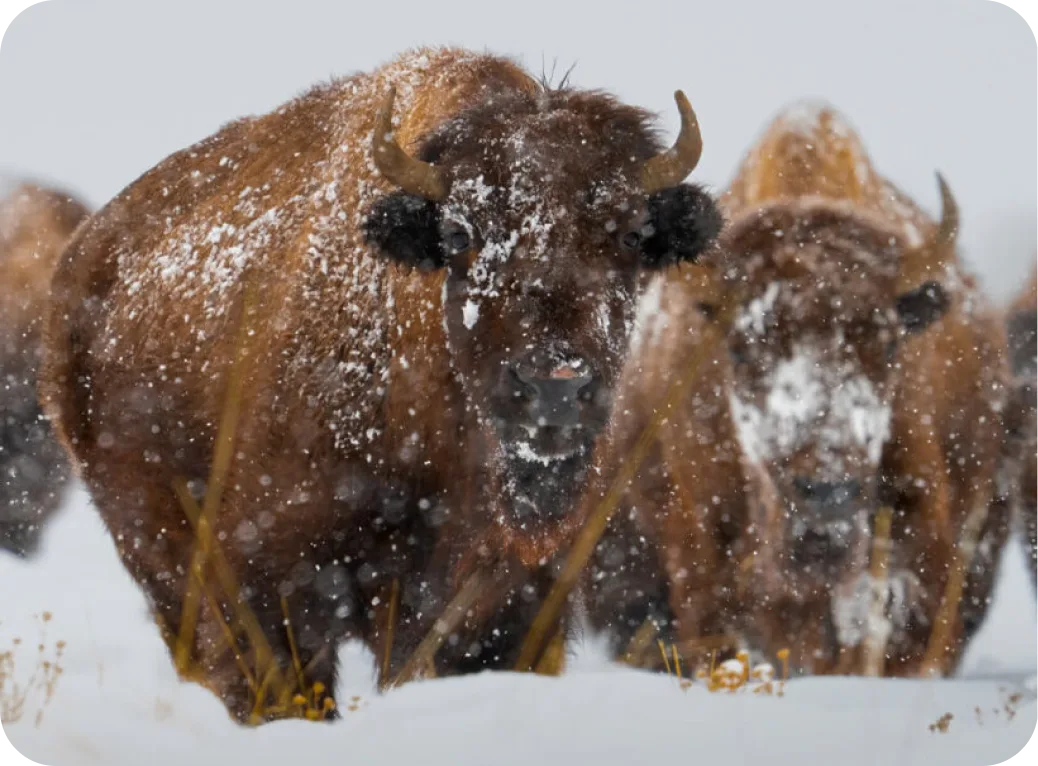
Photo courtesy of Wind River Tribal Buffalo Initiative.
Wind River Tribal Buffalo Initiative
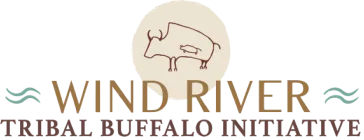
Wind River Tribal Buffalo Initiative is an Indigenous-led organization which aims to rectify the loss of Buffalo from Tribal communities by providing education and engagement activities for Tribal members to learn about and begin to practice their ecological, cultural, and historical connections to buffalo. The Youth Buffalo Cultural Institute focuses on expanding the youth buffalo curriculum and increasing food security for Northern Arapaho and Eastern Shoshone youth by reincorporating Buffalo into their lives, diets, and ceremonies.
2024 impact:
- Nearly 1,000 youth engaged across 80 educational visits.
- 17,000 acre piece of land acquired
- 6 buffalo harvested in 2024, with plans to double the harvest in 2025
“We are on a mission to restore conservation Buffalo through land rematriation, community revitalization, and youth education. The return of Buffalo has the power to heal land and people together; Buffalo restoration is a powerful step in exerting Tribal sovereignty and self-determination.” –Jason Baldes, Executive Director of the Wind River Tribal Buffalo Initiative

Photo courtesy of Wind River Tribal Buffalo Initiative.
Grantee Partner Information
Partner since
1990
Location
(Eastern Shoshone and Northern Arapaho) Wind River Reservation, Wyoming
Priority
Indigenous Food JusticeFurther Reads
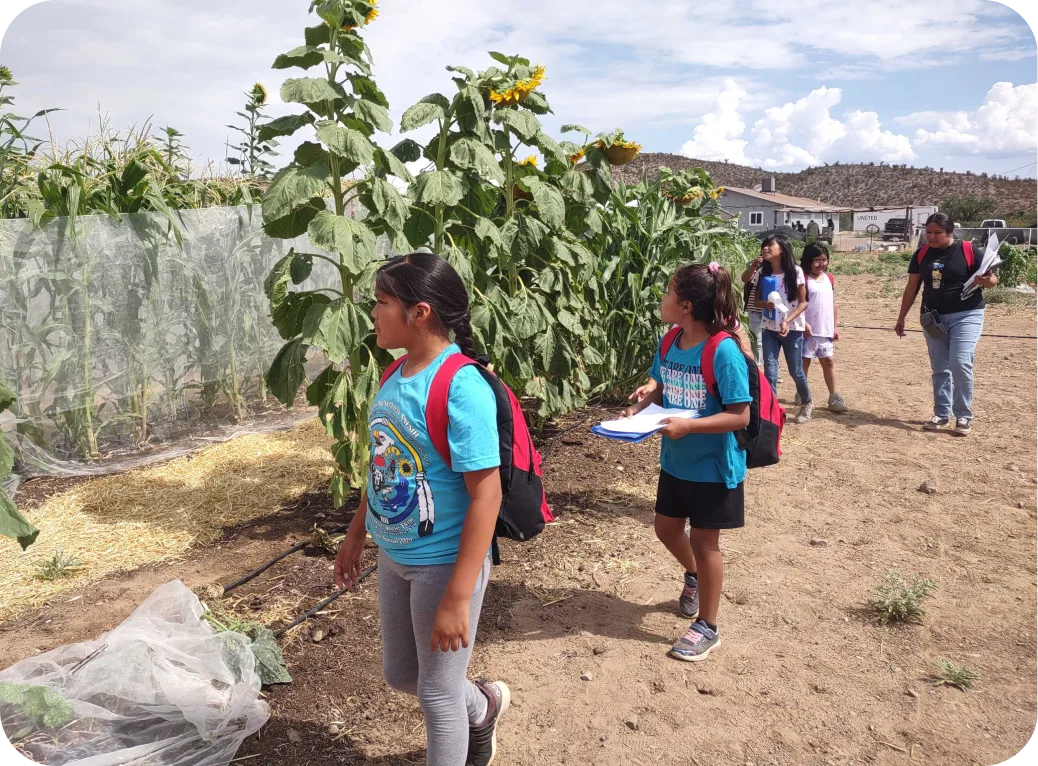
Nalwoodi Denzhone Community.
Nalwoodi Denzhone Community

Working in Arizona, Nalwoodi Denzhone Community (NDC) provides revitalization services to the San Carlos Apache community through food production, youth education, and collaborative outreach. It is committed to bringing holistic health to people and planet through creative, yet practical, solutions relevant to this day and age.

Nalwoodi Denzhone Community.
Grantee Partner Information
Partner since
2022
Location
(San Carlos Apache) San Carlos Apache Reservation, Arizona
Priority
Indigenous Food JusticeFurther Reads
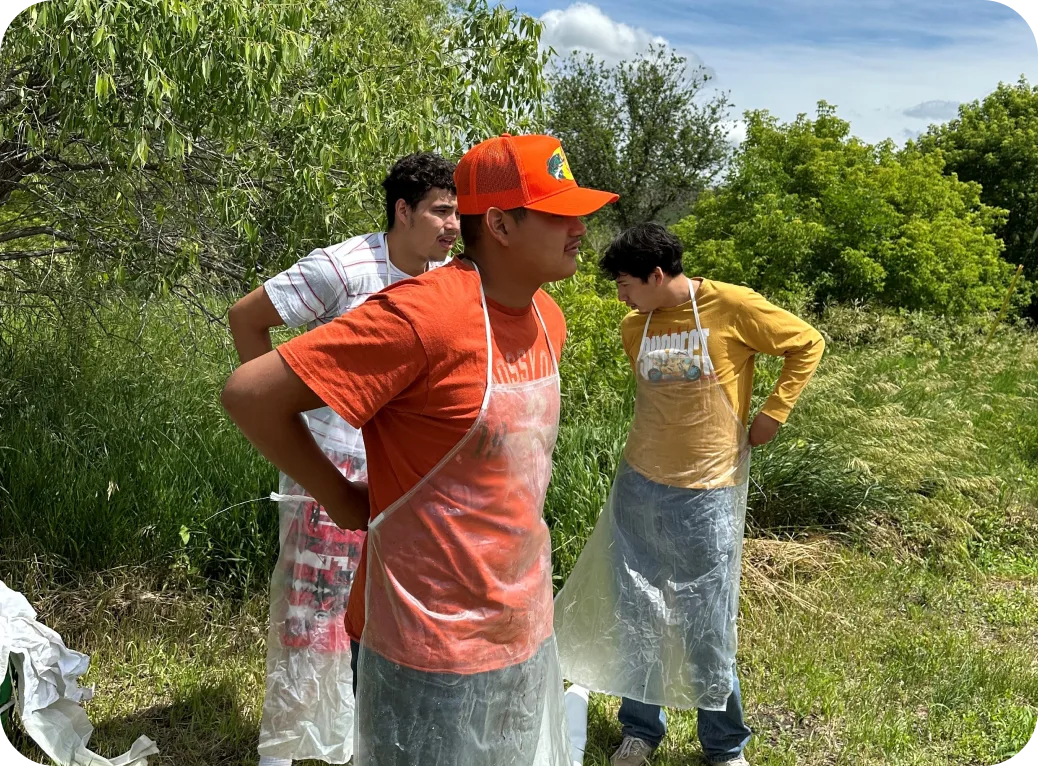
Photo courtesy of Makoce.
Makoce Agriculture Development
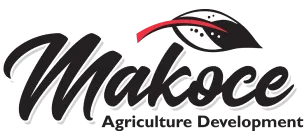
Makoce Agriculture Development’s mission is to develop Indigenous Agriculture & Food Systems designed to regenerate equitable healthy communities, economies, and environment. Its focus is to utilize the land, people, and traditional thoughts and systems to bring the community up and become the thriving Oglala Lakota Oyate. It accomplishes this through 5 Initiatives: The Food Systems Institute, The Food Hub, Regenerative Production Farm, Hemp Production, and the Oceti Sakowin Food Systems Alliance.

Photo courtesy of Makoce.
Grantee Partner Information
Partner since
2021
Location
(Oglála Lakȟóta Oyáte) Pine Ridge Reservation, South Dakota
Priority
Indigenous Food Justice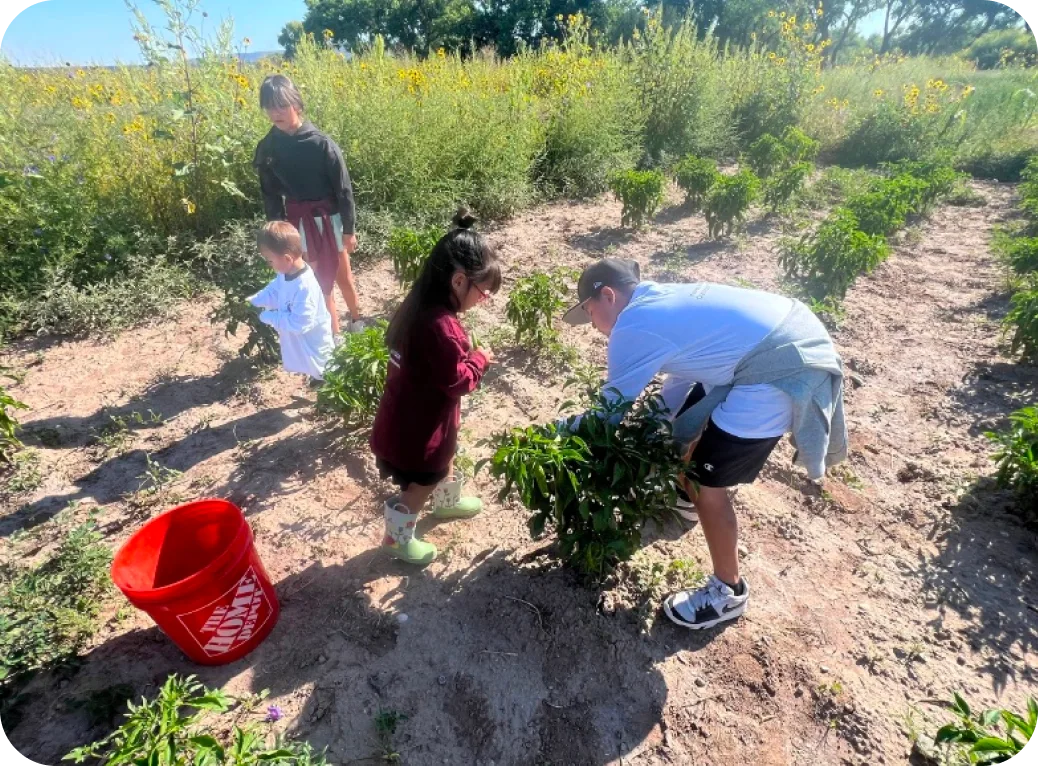
Photo courtesy of Keres Children's Learning Center.
Keres Children’s Learning Center
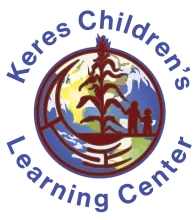
Keres Children’s Learning Center strives to reclaim Keres children’s education and honor their heritage by using a comprehensive cultural and academic curriculum to assist families in nurturing healthy students.

Photo courtesy of Keres Children's Learning Center.
Grantee Partner Information
Partner since
2024
Location
(Cochiti) New Mexico
Priority
Indigenous Food JusticeProgram
2024 Food Justice for Kids Prize Recipient
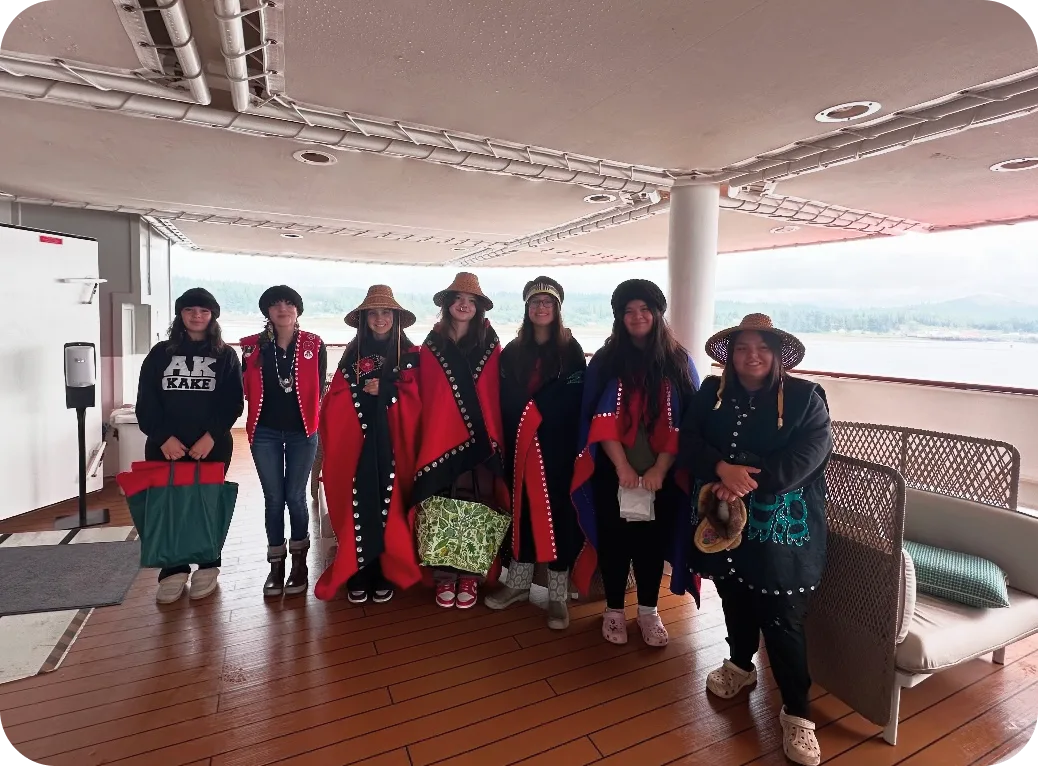
Photo courtesy of Kake Tribal Heritage Foundation.
Kake Tribal Heritage Foundation
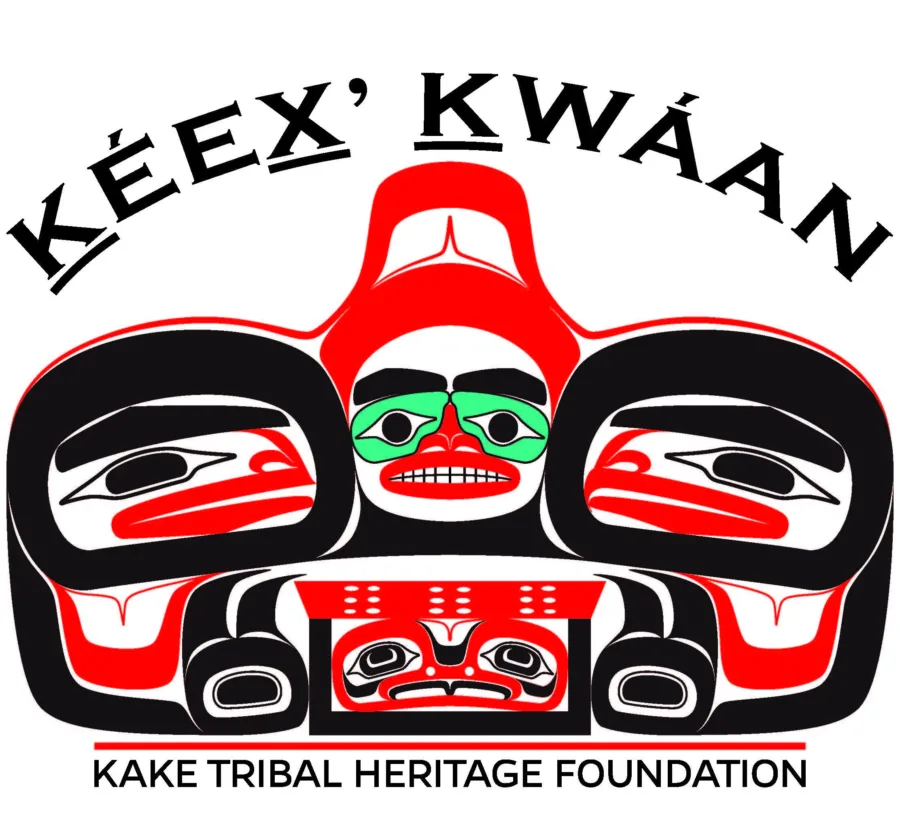
Located in Southeast Alaska, Kake Tribal Corporation’s mission is to serve shareholders and their descendants by preserving culture, protecting shared lands, and enhancing the community’s financial security. Its internship program offers high school students the opportunity to increase their knowledge of food security, their ability to grow and use hydroponics food, and their skills in harvesting and processing traditional wild foods (e.g. salmon, berries, beach greens, deer, and shellfish) for eating and sharing with family and Tribal Elders.

Photo courtesy of Kake Tribal Heritage Foundation.
Grantee Partner Information
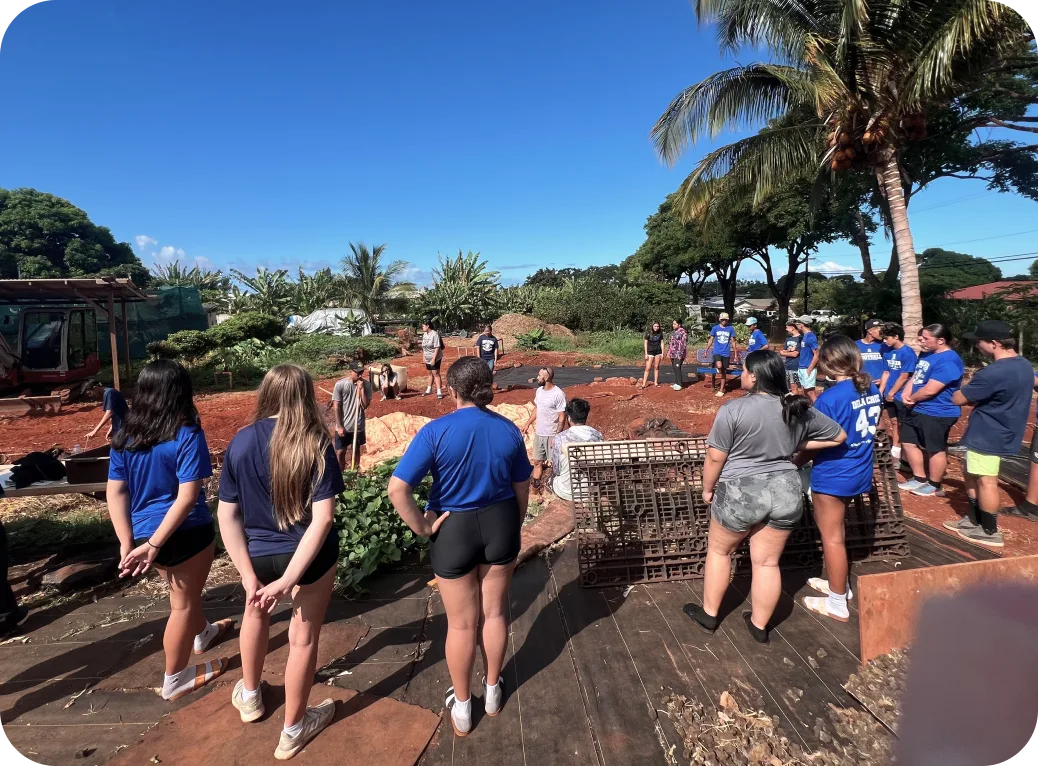
Photo courtesy of Iwikua.
Iwikua

Iwikua serves as an educational resource to benefit the wellness of west Kaua’i and future generations through sustainable food production, physical fitness, and cultural exchange.

Photo courtesy of Iwikua.
Grantee Partner Information
Partner since
2024
Location
Hawai’i
Priority
Indigenous Food JusticeProgram
2024 Food Justice for Kids Prize Recipient
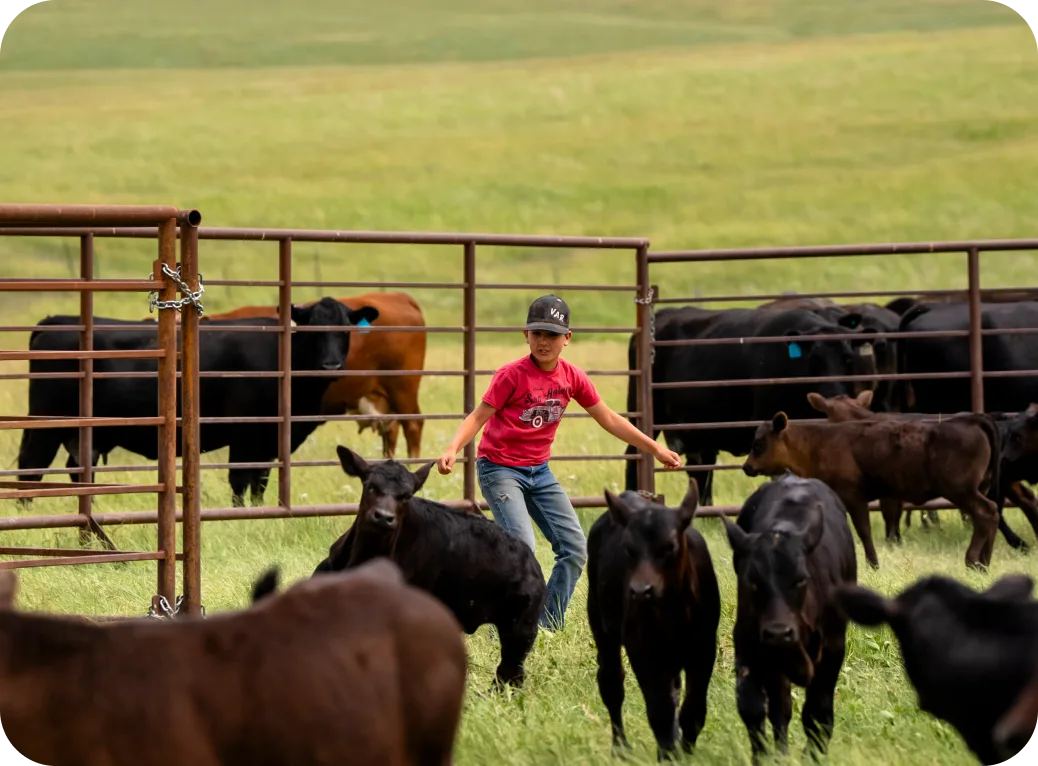
Photo courtesy of Intertribal Agriculture Council.
Intertribal Agriculture Council
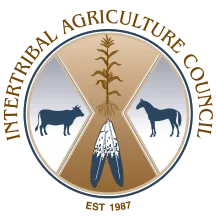
Intertribal Agriculture Council is a Billings-based organization that conducts a wide range of programs designed to improve Indian Agriculture and provide a unified effort to promote change for the benefit of Indian people.

Photo courtesy of Intertribal Agriculture Council.
Grantee Partner Information
Partner since
2024
Location
Montana
Priority
Indigenous Food JusticeProgram
2024 Food Justice for Kids Prize Recipient
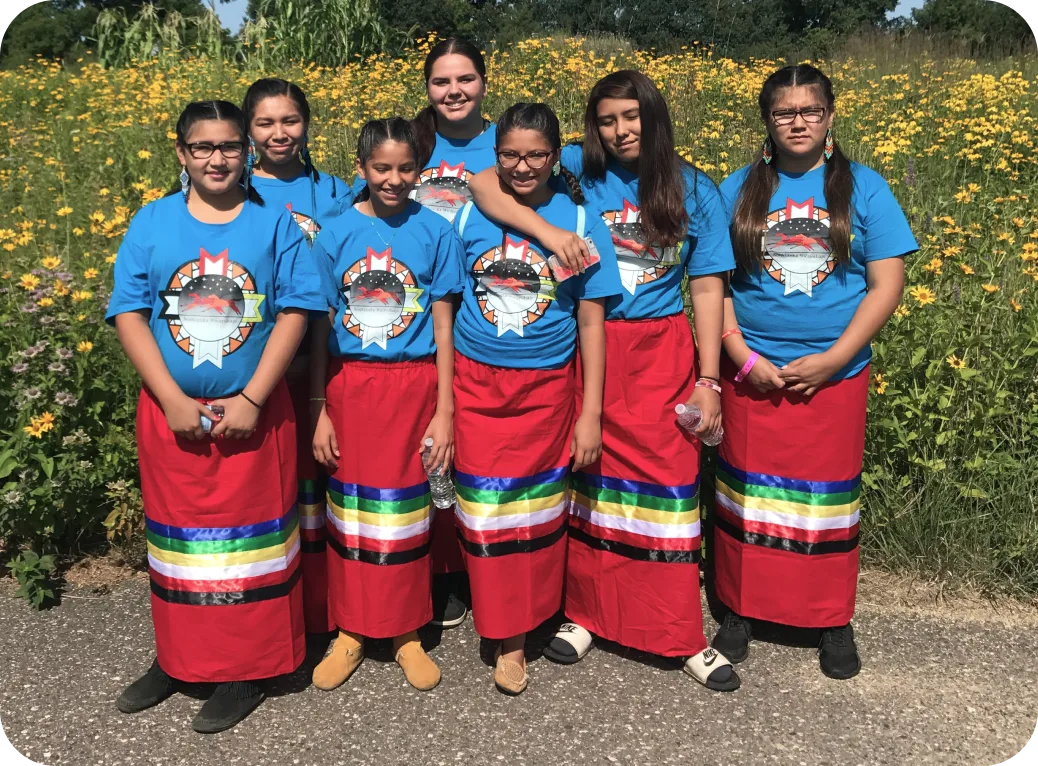
Photo courtesy of First Nations Development Institute.
First Nations Development Institute

The mission of First Nations Development Institute (FNDI) is to strengthen American Indian economies, in turn, supporting healthy Native communities. Through its Nourishing Native Food and Health program, FNDI supports tribes and Native communities in building Indigenous food systems that improve community health, increase control over Native agriculture and food, and reaffirm culture through Indigenous land stewardship practices and understandings. This focus includes reaching the next generation of Native food producers by investing in Native-led organizations that are working toward stronger food economies, food systems, and food security through youth education.

Photo courtesy of First Nations Development Institute.
Grantee Partner Information
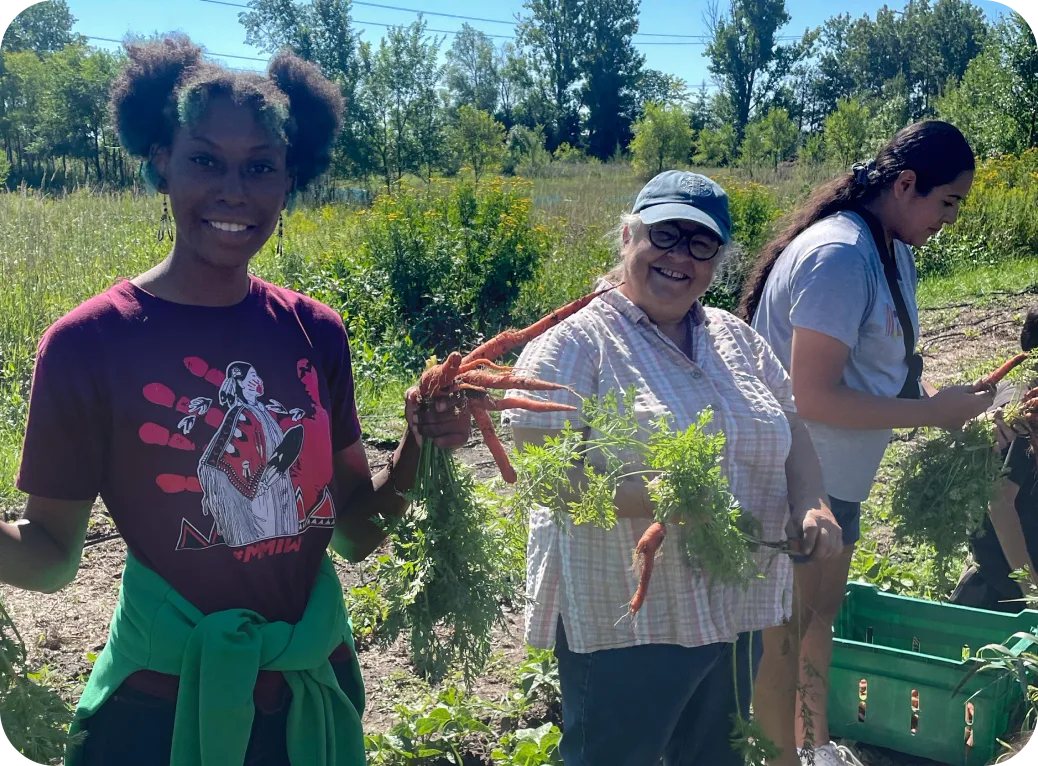
Photo courtesy of Dream of Wild Health.
Dream of Wild Health
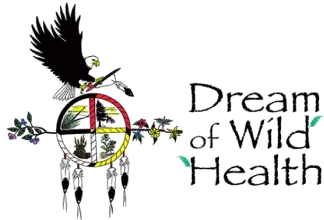
The mission of Dream of Wild Health is to restore health and well-being in the Native community by recovering knowledge of and access to healthy Indigenous foods, medicines, and lifeways. To achieve this vision, staff work to build community, share Indigenous traditional knowledge, teach about and advocate for food sovereignty, host workshops and community events, and support community partner organizations, schools, and Tribal communities.

Photo courtesy of Dream of Wild Health.
Grantee Partner Information
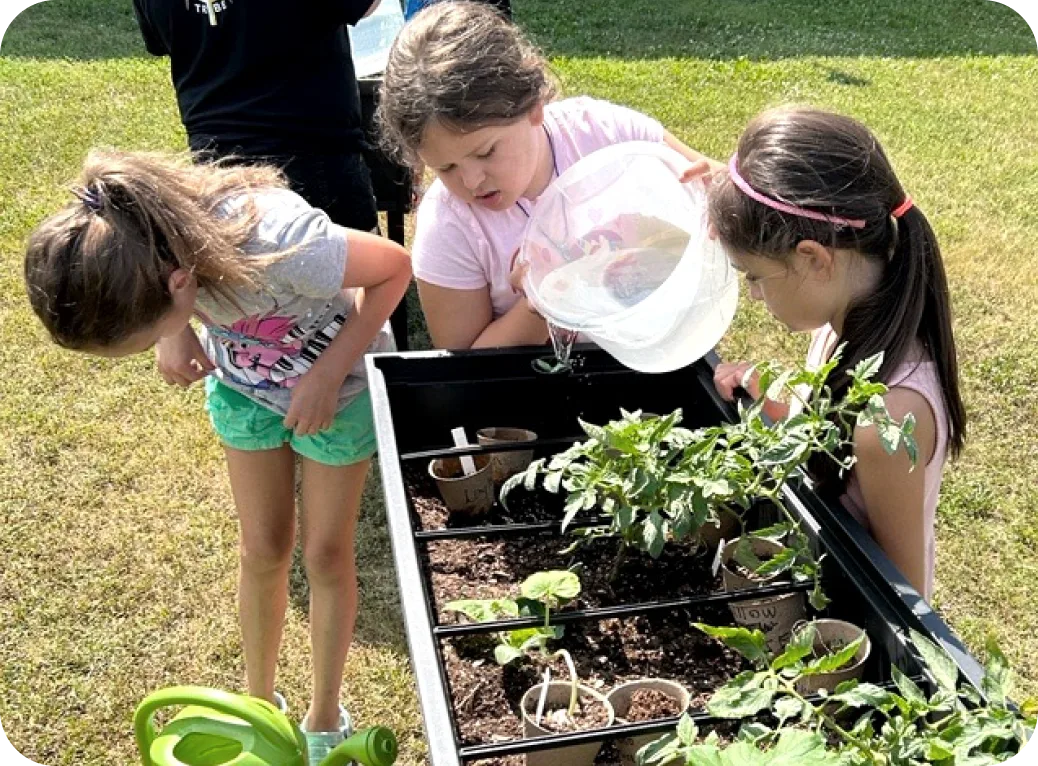
Photo courtesy of Chickahominy Indian Tribe.
Chickahominy Indian Tribe
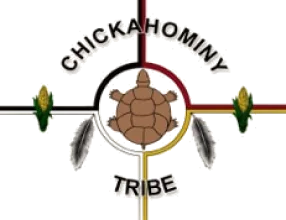
The Chickahominy Indian Tribe’s mission is to serve its citizens by creating a respectful path to lasting well-being and connection that honors the past, sustains the present, and inspires the future, to preserve and protect the resources that Creator has entrusted to them, and to strengthen government-to-government relationships by exercising Tribal sovereignty in a responsible, deliberate, and sustainable manner. As part of its programming, Tribal Youth will learn to assemble, create, and maintain raised garden beds on Tribal property. This activity will instill knowledge about traditional foods and cultivation techniques.

Photo courtesy of Chickahominy Indian Tribe.
Grantee Partner Information
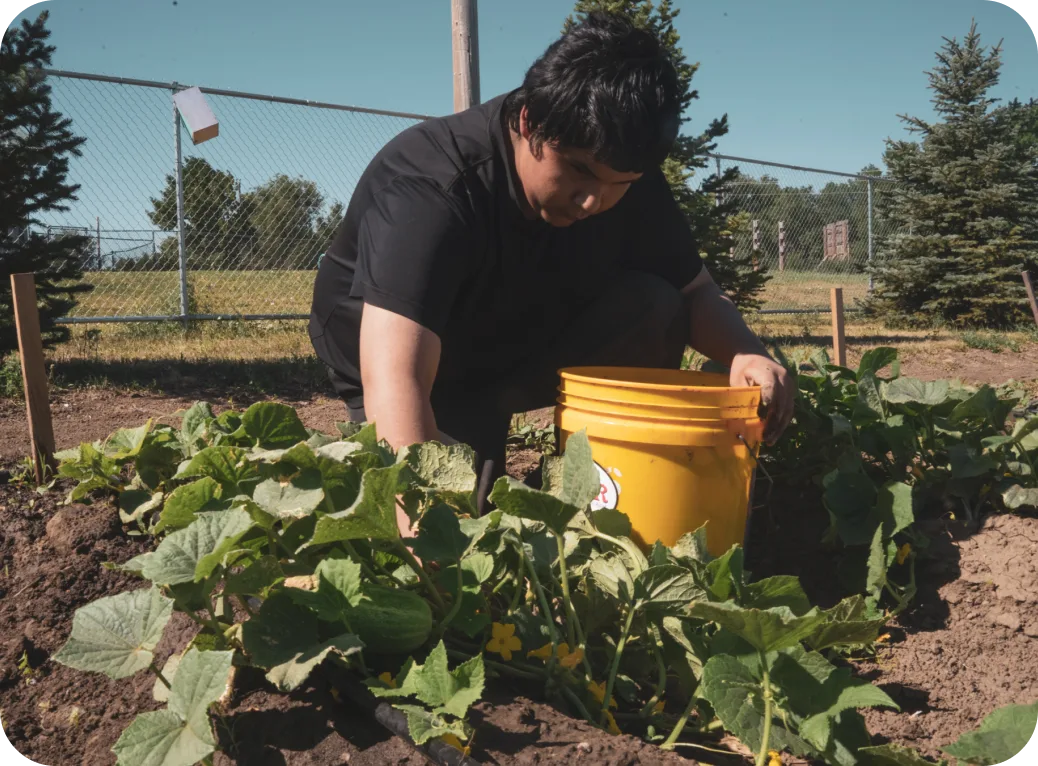
Photo courtesy of Cheyenne River Youth Project.
Cheyenne River Youth Project
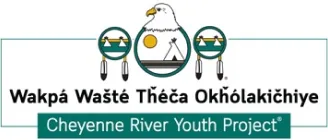
The Cheyenne River Youth Project is dedicated to providing the young people on the Cheyenne River Sioux Reservation with the resources and opportunities they need to build a future in which they will do more than survive—they will thrive. A critical part of its programming is Native Food Sovereignty, which includes the 2.5-acre Winyan Toka Win (Leading Lady) Garden, Native Food Sovereignty Teen Internships, and Garden Club for 4- to 12-year-olds.

Photo courtesy of Cheyenne River Youth Project.
Grantee Partner Information
Partner since
2021
Location
(Lakota) Cheyenne River Lakota Nation, South Dakota
Priority
Indigenous Food JusticeFurther Reads
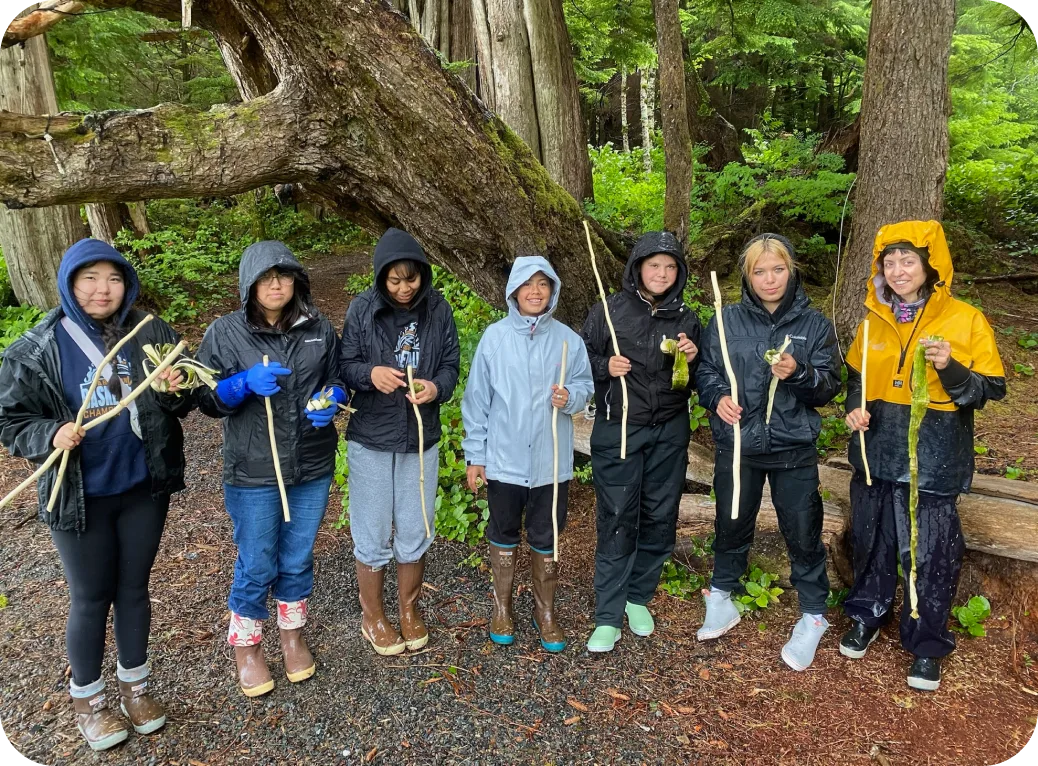
Photo courtesy of Central Council of Tlingit & Haida Indian Tribes of Alaska.
Central Council of Tlingit & Haida Indian Tribes of Alaska
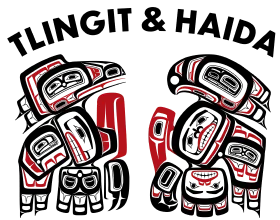
Central Council of Tlingit & Haida Indian Tribes of Alaska is a tribal government working to preserve sovereignty, enhance economic and cultural resources, and promote self-sufficiency and self-governance for over 37,000 Tlingit and Haida Indians.

Photo courtesy of Central Council of Tlingit & Haida Indian Tribes of Alaska.
Grantee Partner Information
Partner since
2024
Location
(Tlingit and Haida) Alaska
Priority
Indigenous Food JusticeProgram
2024 Food Justice for Kids Prize Recipient
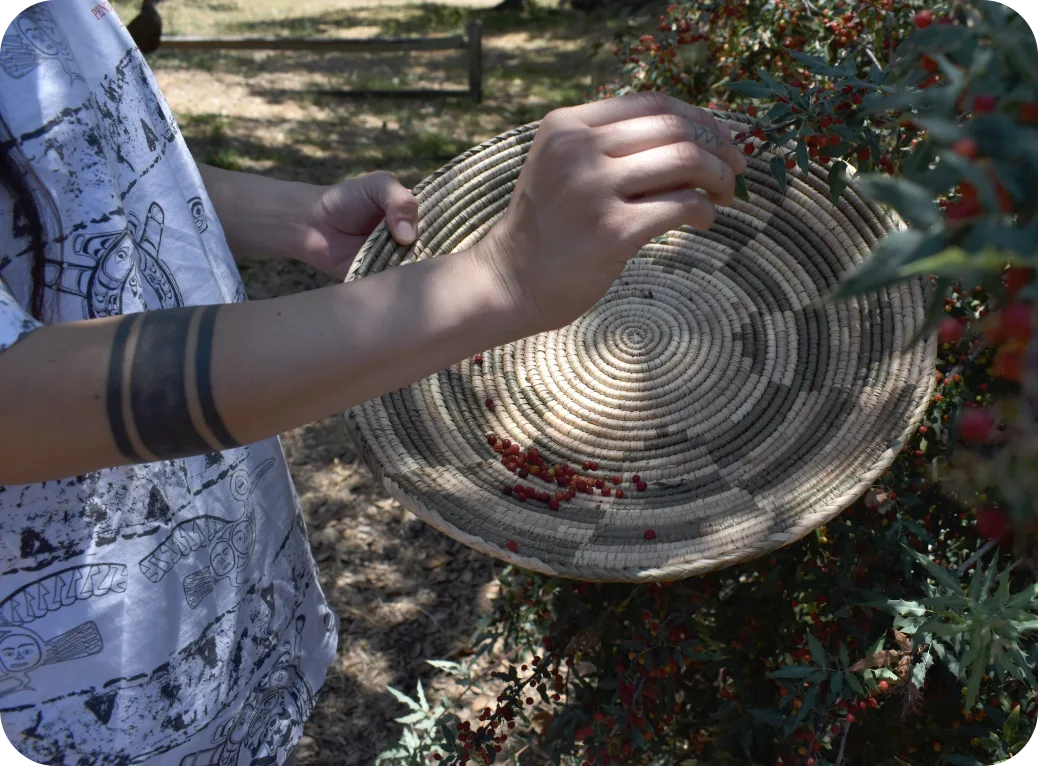
California Indian Culture and Sovereignty Center
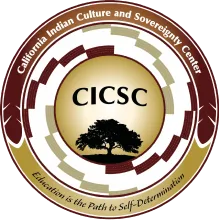
The California Indian Culture and Sovereignty Center (CICSC) fosters collaborative research and community service relationships between the faculty, staff, and students of CSU San Marcos and members of Tribal communities, to develop and conduct research projects that support the maintenance of sovereignty and culture within those communities.
CICSC’s Food Sovereignty Initiatives provide resources, hands on learning and community programming to rekindle Indigenous communities’ knowledge and inspire the use of fresh, culturally specific foods to decolonize one’s plate. These initiatives enhance nutrition security for Southern California Indigenous youth by identifying gaps in California Natives’ ability to access traditional foods and create strategies to address these issues.

Grantee Partner Information
Partner since
2022
Location
Hosted by California State University San Marcos Foundation, California
Priority
Indigenous Food JusticeFurther Reads
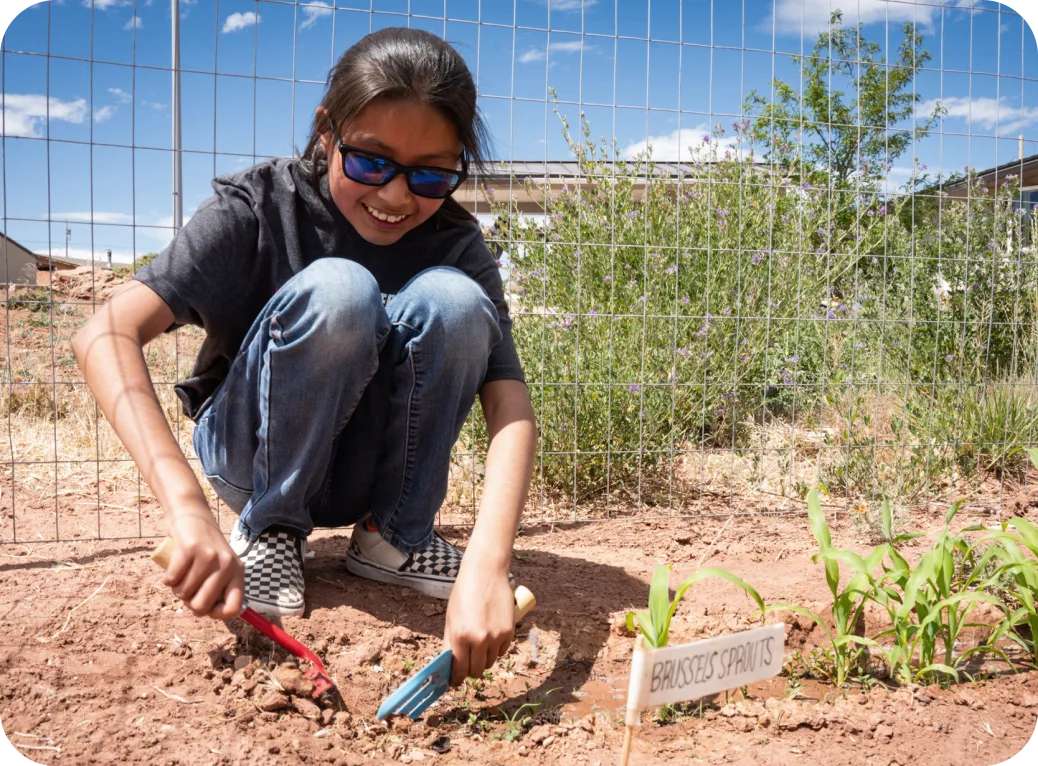
Zuni Youth Enrichment Project
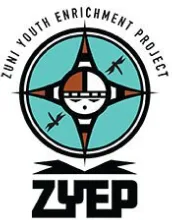
The mission of Zuni Youth Enrichment Project (ZYEP) is to promote resilience among Zuni youth, so they will grow into strong and healthy adults who are connected with Zuni traditions. ZYEP pursues its mission by providing Zuni youth with positive role models, enriching programs, and nurturing spaces that build on the strengths of the community.
2024 impact:
- 1,800 Indigenous youth reached through school and community programming..
- Youth awareness of traditional healthy foods increased from 35% to 57%
“My favorite thing about the afterschool program was when we got to cook stuff…my favorite was Zoodles!” Third-grader Lilly B.

Grantee Partner Information
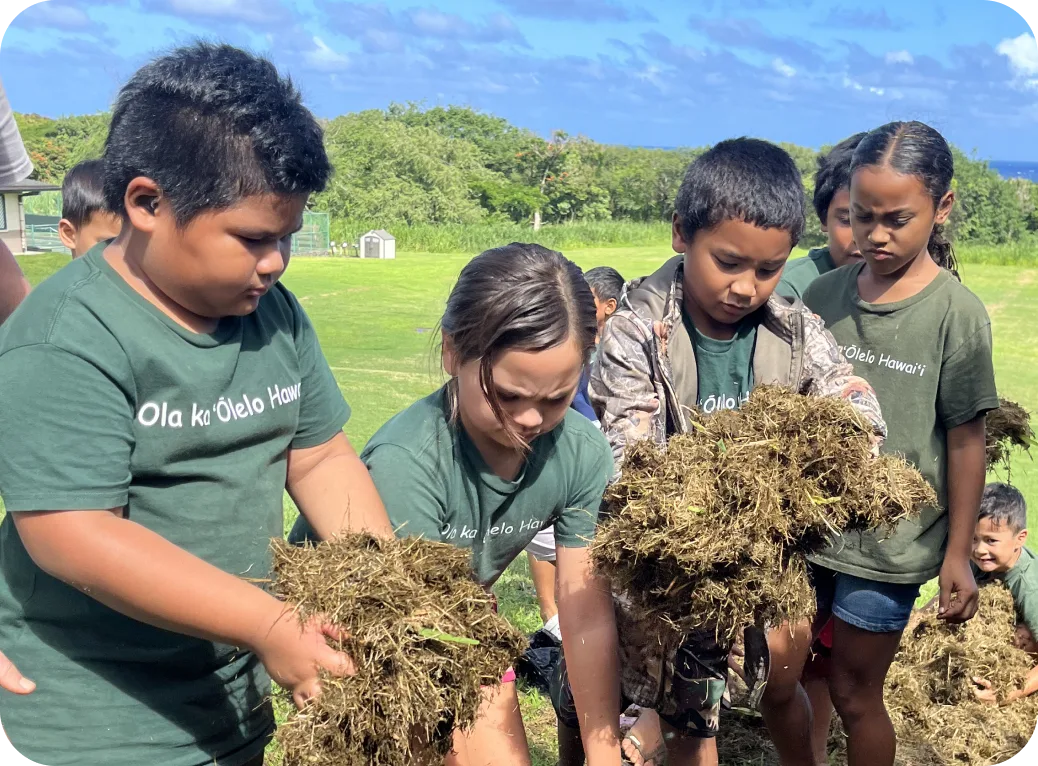
Photo courtesy of Ma Ka Hana Ka 'Ike.
Ma Ka Hana Ka ‘Ike

Ma Ka Hana Ka Ike’s mission is to provide Hāna’s youth with a way to learn that makes sense to them, builds their self-esteem, and shows them they have the power to shape their future. Its methodology consists of a service-oriented education continuum, which provides meaningful work-based learning opportunities that strengthen environmental stewardship, intergenerational relationships, and technical skills, while creating a pathway for youth to learn, grow, teach, and inspire the next generation.
2024 impact:
- 96% of participating youth reported stronger connections to Hawaiian values
- 100% of the youth reported an increase in their cultural farming and culinary skills
- $2M awarded from MacKenzie Scott’s Yield Giving in 2024
“I learned about working hard and working with my hands. If you take care of the land, the land takes care of you!” —Ma Ka Hana Ka ‘Ike Elementary participant

Photo courtesy of Ma Ka Hana Ka 'Ike.
Grantee Partner Information
Apply for a grant
Learn about open opportunities we are supporting through our funding.
